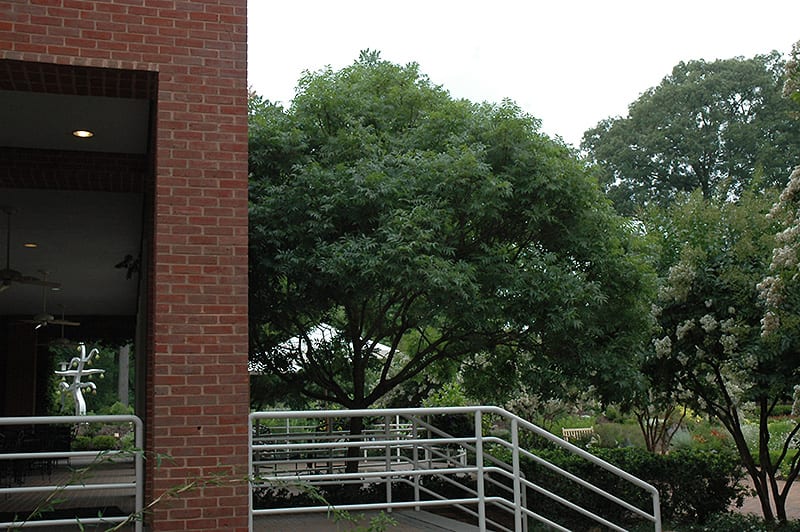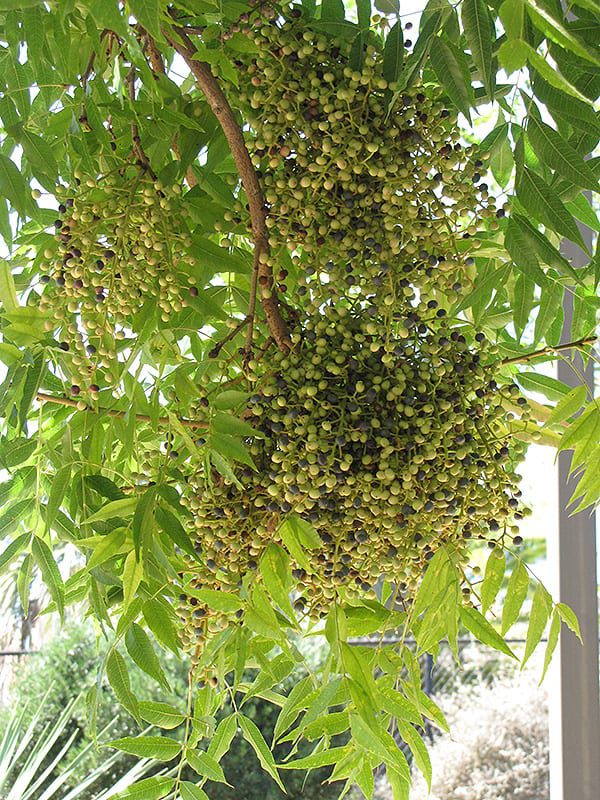Images provided by NetPS Plant Finder Tool
Chinese Pistache
$169.99 – $399.99
When very young this tree may not steal the show, but with a little training and pruning it will grow into a magnificent umbrella-shaped specimen with deep green leaves that progress to orange and red in fall; vigorous and good for urban planting.
Species: chinensis
Plant Height: 420 in.
Spread: 420 in.
Evergreen: No
Plant Form: upright spreading
Summer Foliage Color: dark green
Minimum Sunlight: full sun
Maximum Sunlight: full sun
Chinese Pistache has dark green foliage throughout the season. The pointy pinnately compound leaves turn an outstanding crimson in the fall. The flowers are not ornamentally significant. The fruits are showy blue drupes displayed in mid summer.
Chinese Pistache is a deciduous tree with an upright spreading habit of growth. Its average texture blends into the landscape, but can be balanced by one or two finer or coarser trees or shrubs for an effective composition.This tree will require occasional maintenance and upkeep, and should only be pruned after flowering to avoid removing any of the current season's flowers. It is a good choice for attracting birds to your yard. It has no significant negative characteristics.Chinese Pistache is recommended for the following landscape applications;AccentShade
Chinese Pistache will grow to be about 35 feet tall at maturity, with a spread of 35 feet. It has a high canopy with a typical clearance of 6 feet from the ground, and should not be planted underneath power lines. As it matures, the lower branches of this tree can be strategically removed to create a high enough canopy to support unobstructed human traffic underneath. It grows at a medium rate, and under ideal conditions can be expected to live for 60 years or more.This tree should only be grown in full sunlight. It is very adaptable to both dry and moist growing conditions, but will not tolerate any standing water. It is not particular as to soil type or pH. It is highly tolerant of urban pollution and will even thrive in inner city environments. This species is not originally from North America.

